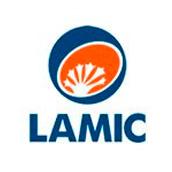Aspergillus: Protecting Plants May Start with the Seed
Published: December 26, 2022
Source : https://tellus.ars.usda.gov/stories/articles/protecting-plants-may-start-with-the-seed/

You may not have heard of the fungus Aspergillus, but the farmers who produce your food are certainly aware of it. Aflatoxin is a toxic, carcinogenic compound produced by some Aspergillus species and found in several agricultural commodities, such as corn, cotton seeds, and nuts. It can also be found in soil, decaying vegetation, hay, and stored grains during moist and hot conditions.
Aflatoxin is a significant threat to our food supply because it can contaminate crops, significantly limiting food production in the southern United States, where hot, dry conditions are particularly conducive to fungal growth and aflatoxin production.
"Aflatoxin is a major problem," said plant pathologist Dr. Hamed Abbas, of ARS's Biological Control of Pests Research Unit in Stoneville, MS. "In 1999 and 2000, a lot of farmers lost their yield completely due to the aflatoxin epidemic, and traditionally in the South about every 10 years, we get an epidemic."
High doses of this fungus can threaten the health of humans, pets, fish, livestock, and even wild animals like migrating birds. It has been known to cause acute and chronic liver injury and liver cancer. ARS researchers and their collaborators have spent years developing fungal strains to treat soil and plants as they grow, using a "good" (or at least innocuous) strain of the fungus, Aspergillus flavus, to prevent harmful fungi from contaminating crops.
However, a more recent strategy for delivering the protective fungus focuses on coating crop seeds with a natural mixture that includes the "good" strain of Aspergillus flavus, using corn-starch based bioplastic and biochar.
"The seed is underground, so you need to protect the seed from the bad fungi by adding the good fungi, because the mechanism is competition," said Abbas. "Whichever fungi arrives first can control the plant, so if you treat the seed with the good fungi, then you prevent the bad fungi from controlling it."
Biocontrol methods like beneficial fungi have become an important strategy for mitigating aflatoxin contamination in vital crops across the southern tier of the U.S. and in many other parts of the world. Aspergillus strains have shown to be effective, but current delivery methods can be wasteful, and the fungus must be applied before growers know if aflatoxin will be a problem in a given season.
Abbas and his team converted their fungal Aspergillus bioplastic, which has been used for years to fight aflatoxins on crops, into a slurry. The slurry is a coating made from corn starch and other biodegradable raw materials, which helps the fungus stick to the seeds. The team then used the slurry to coat the seeds of corn, peanut, and other crops susceptible to aflatoxins prior to planting them in the ground. The coating acted like a physical barrier against the bad fungi, preventing it from penetrating the plant in the first place.
"The coating enables the bioplastic particles to dry to form a hard, durable coating on seeds that can incorporate agrochemicals and biocontrol microorganisms in a form that resists dust-off of incorporated agents," he said, "and it's completely biodegradable and environmentally friendly."
Abbas has seen this technology successfully applied to corn. He is now testing it on other crops, including soybean and peanuts, as well as adding the natural soil-enriching ingredient, biochar, to the seed coating.
"Biochar can improve the health of the plant and help it overcome physiological stresses like drought," he said. "If the seed is healthy, then the farmers will have a healthier yield and the consumers will have a healthier food."
Biochar is already commonly applied to soil to enrich crops. Abbas is adding biochar made from plant waste such as peach pit and grape stems, or from hardwood or coconut shells to his bioplastic seed coatings. He is also researching whether coating the seeds with biochar will provide nutrient benefits to the crops in the same soil on subsequent years.
To read the complete report, go to https://tellus.ars.usda.gov/stories/articles/protecting-plants-may-start-with-the-seed/.
Source
https://tellus.ars.usda.gov/stories/articles/protecting-plants-may-start-with-the-seed/Related topics:
Mentioned in this news release:
USDA - United States Department of Agriculture
Recommend
Comment
Share

Would you like to discuss another topic? Create a new post to engage with experts in the community.






